
Ruggell: The Serene Gateway of Liechtenstein
Nestled in the northernmost part of Liechtenstein, Ruggell is a tranquil village that offers a unique blend of natural beauty and cultural heritage. With its picturesque landscapes, Ruggell is a haven for nature enthusiasts and those seeking a peaceful retreat away from bustling city life. The village is surrounded by lush meadows, quaint farms, and the serene Rhine River, making it an ideal spot for hiking, cycling, and bird watching. Ruggell is not just about nature; it also boasts a rich historical background. The village is home to the Ruggell Church of St. Fridolin, a historical landmark that dates back to the 12th century. Visitors can also explore the Ruggell Marsh, a protected nature reserve that serves as a sanctuary for a variety of flora and fauna. The marsh is a perfect spot for leisurely walks and offers stunning views of the surrounding mountains. The village's friendly atmosphere and welcoming locals add to its charm. Ruggell is a great place to experience the traditional Liechtenstein way of life. Local festivals and events are held throughout the year, offering tourists a chance to immerse themselves in the local culture. Whether you're looking to relax in nature or delve into the history and traditions of Liechtenstein, Ruggell provides a perfect getaway.
Local tips in Ruggell
- Visit the Ruggell Church of St. Fridolin to appreciate its historical significance and architecture.
- Explore the Ruggell Marsh for a peaceful walk and bird-watching opportunities.
- Rent a bike to enjoy the scenic cycling routes around the village and along the Rhine River.
- Check the local calendar for festivals and events to experience traditional Liechtenstein culture.
- Try local cuisine at village eateries to savor traditional Liechtenstein dishes.
Ruggell: The Serene Gateway of Liechtenstein
Nestled in the northernmost part of Liechtenstein, Ruggell is a tranquil village that offers a unique blend of natural beauty and cultural heritage. With its picturesque landscapes, Ruggell is a haven for nature enthusiasts and those seeking a peaceful retreat away from bustling city life. The village is surrounded by lush meadows, quaint farms, and the serene Rhine River, making it an ideal spot for hiking, cycling, and bird watching. Ruggell is not just about nature; it also boasts a rich historical background. The village is home to the Ruggell Church of St. Fridolin, a historical landmark that dates back to the 12th century. Visitors can also explore the Ruggell Marsh, a protected nature reserve that serves as a sanctuary for a variety of flora and fauna. The marsh is a perfect spot for leisurely walks and offers stunning views of the surrounding mountains. The village's friendly atmosphere and welcoming locals add to its charm. Ruggell is a great place to experience the traditional Liechtenstein way of life. Local festivals and events are held throughout the year, offering tourists a chance to immerse themselves in the local culture. Whether you're looking to relax in nature or delve into the history and traditions of Liechtenstein, Ruggell provides a perfect getaway.
When is the best time to go to Ruggell?
Iconic landmarks you can’t miss
Vaduz Castle
Discover Vaduz Castle: A majestic symbol of Liechtenstein's rich heritage, offering stunning views and a glimpse into its royal history.
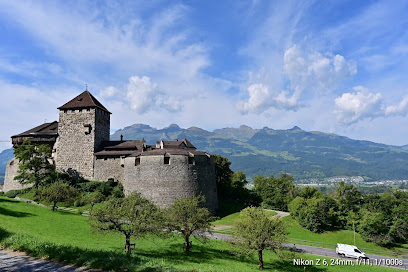
Burg Gutenberg
Discover the enchanting Burg Gutenberg in Balzers, where history and live music create unforgettable experiences in the heart of Liechtenstein.
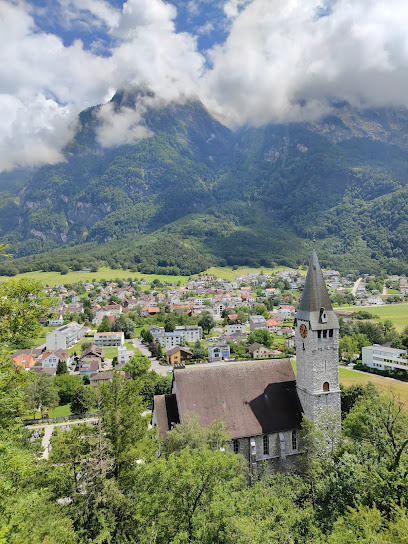
Kathedrale St. Florin
Discover the stunning St. Florin Cathedral in Vaduz, an architectural marvel and spiritual retreat in the heart of Liechtenstein.
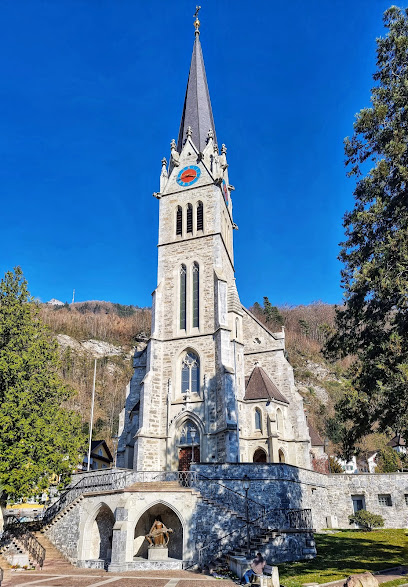
Liechtenstein Center
Explore the wonders of Liechtenstein at the Liechtenstein Center, your essential guide to this stunning Alpine nation.
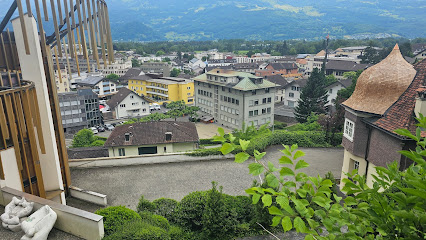
Paxmal
Explore Paxmal, a stunning landmark in Walenstadt, Switzerland, where art meets history in a breathtaking setting.
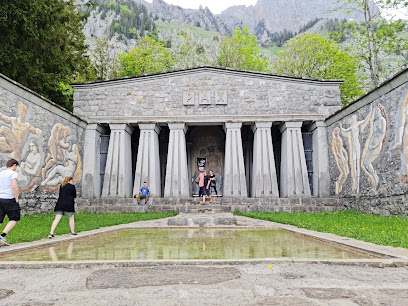
Vaduz Citytrain AG
Discover the charm of Vaduz with Vaduz Citytrain AG, your ideal sightseeing tour for exploring Liechtenstein's stunning capital and its rich history.
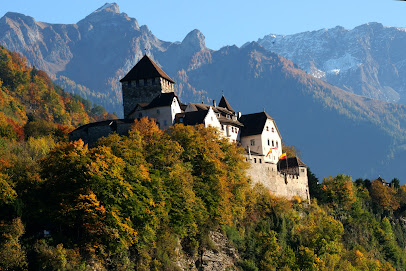
Alte Rheinbrücke
Discover the breathtaking Alte Rheinbrücke in Sevelen, Switzerland, a stunning bridge offering scenic views and a glimpse into the region's rich history.
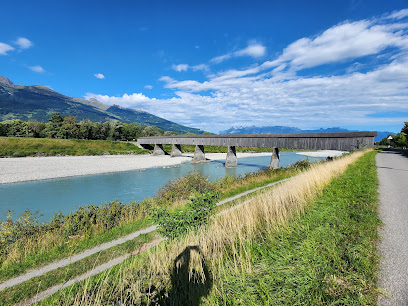
Rheinpark Stadium
Rheinpark Stadium in Vaduz: The heart of sports and entertainment in Liechtenstein, where thrilling matches and vibrant events come to life.
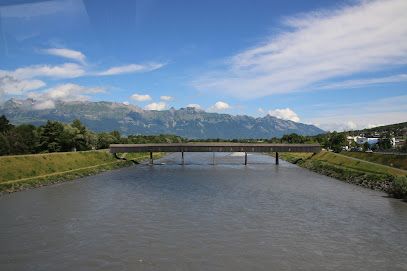
Kunstmuseum Liechtenstein
Explore the captivating world of contemporary art at Kunstmuseum Liechtenstein, where architecture and creativity unite in the heart of Vaduz.
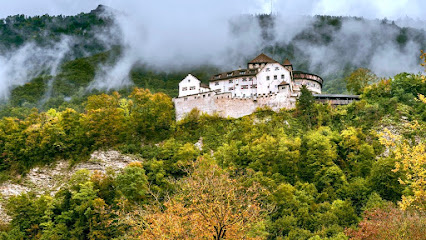
Casino Admiral Ruggell
Discover the thrill of gaming and delightful dining at Casino Admiral Ruggell, where excitement and flavor meet in a stunning setting.
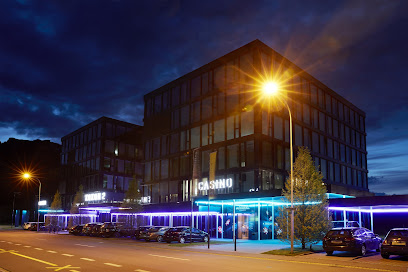
Obere Burg
Discover the enchanting Obere Burg in Schellenberg, a historical landmark where rich history meets breathtaking landscapes in Liechtenstein.
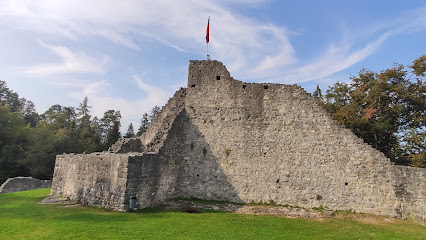
Vogelparadies Birka
Explore Vogelparadies Birka, a charming animal park in Mauren where bird watching and nature come alive in a serene environment.
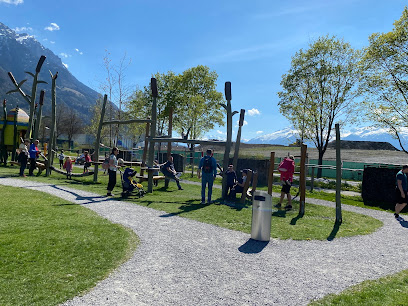
Liechtensteinisches LandesMuseum
Explore the heart of Liechtenstein's culture and history at the Liechtensteinisches LandesMuseum, where art and tradition come to life.
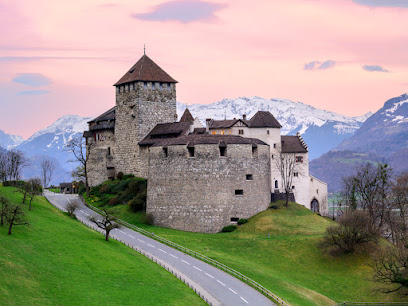
Postmuseum Vaduz
Discover the rich postal heritage of Liechtenstein at Postmuseum Vaduz, an engaging museum showcasing the evolution of communication and postal services.
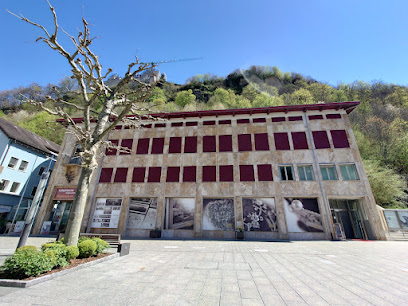
Cristo-Statue
Experience the breathtaking beauty and spiritual significance of the Cristo-Statue in Pfäfers, Switzerland, a must-visit landmark for all travelers.
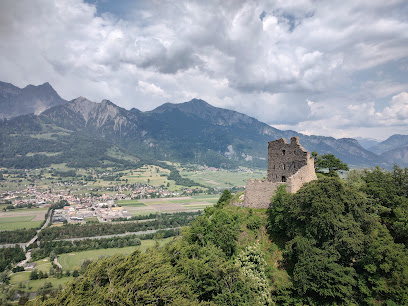
Unmissable attractions to see
Zeppelin Museum Friedrichshafen
Explore the history of airship travel and technology at the Zeppelin Museum, home to the world's largest collection of Zeppelin artifacts.
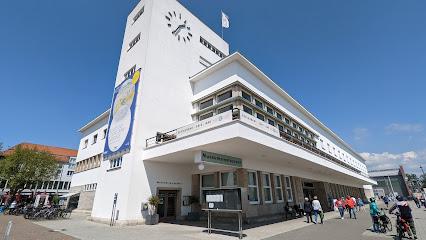
Dornier Museum
Explore a century of aviation and space history at the Dornier Museum, featuring pioneering aircraft and interactive exhibits in Friedrichshafen.
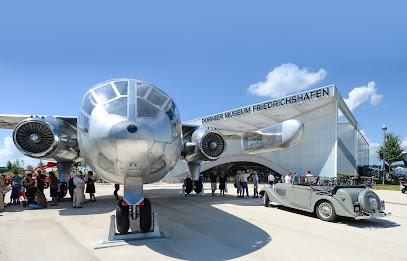
Lake Constance
Explore Lake Constance: Where Germany, Switzerland, and Austria Meet. Discover history, nature, and endless activities on this stunning lake.
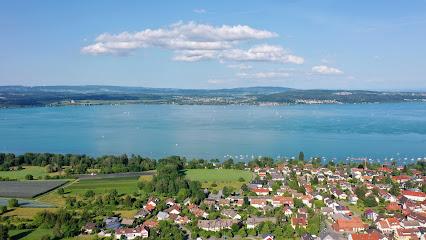
Uferpromenade Friedrichshafen
Stroll along Lake Constance on this scenic promenade with stunning Alpine views, gardens, cafes, and cultural attractions.
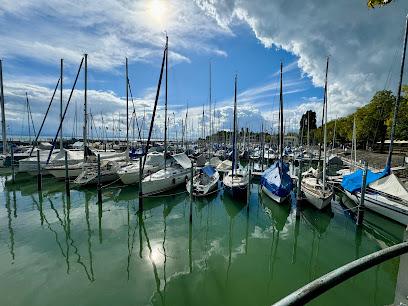
Heididorf
Experience the timeless charm of Heidi's world in the authentic Swiss village of Maienfeld, a perfect family destination.
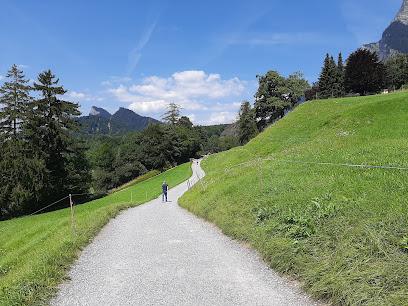
Abbey of Saint Gall
Explore a UNESCO World Heritage Site with stunning Baroque architecture, a rich history, and one of the world's oldest libraries.
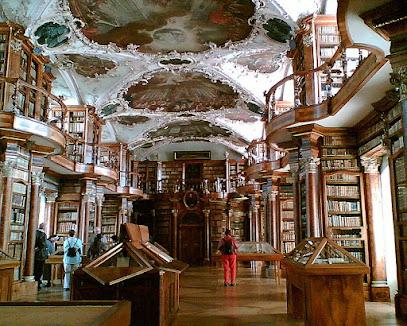
House of Läderach | Schweiz | Bilten
Discover the art of Swiss chocolate making at the House of Läderach in Bilten, with factory tours, chocolate tasting, and hands-on workshops.
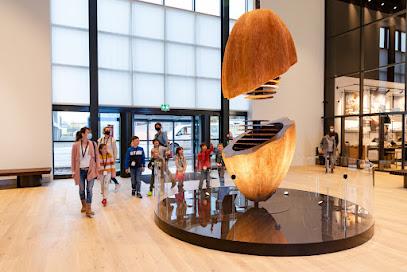
Wildpark Feldkirch
Discover Vorarlberg's wildlife at Wildpark Feldkirch: nature trails, animal encounters, and family fun on the Ardetzenberg.
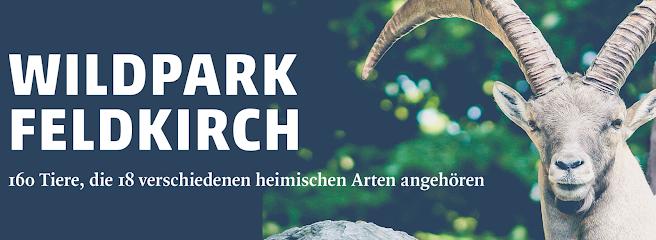
Seebühne Bregenz
Experience the magic of opera at Seebühne Bregenz, a breathtaking outdoor stage on Lake Constance known for its stunning performances and scenic vistas.
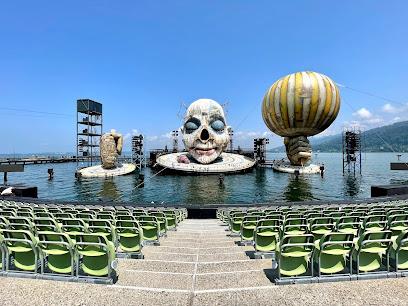
Appenzeller Schaukäserei
Discover the secrets of Appenzeller cheese at this interactive dairy, complete with tours, exhibits, and traditional Swiss flavors.
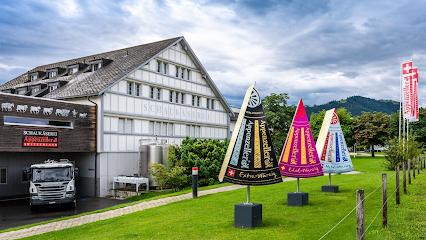
Bregenzer Festspiele
Experience world-class opera on a floating stage against the stunning backdrop of Lake Constance. A cultural highlight in Bregenz, Austria.
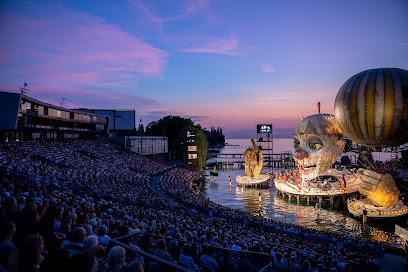
Aescher - Guesthouse on the mountain
Experience the breathtaking views and unique charm of Berggasthaus Aescher, a historic Swiss guesthouse built into a cliffside in the Alpstein mountains.
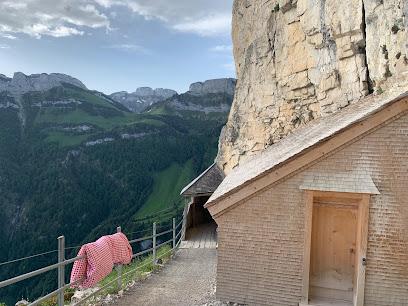
St. Gallen Cathedral
Explore St. Gallen Cathedral, a stunning Baroque masterpiece and UNESCO World Heritage site with rich history and artistic treasures.
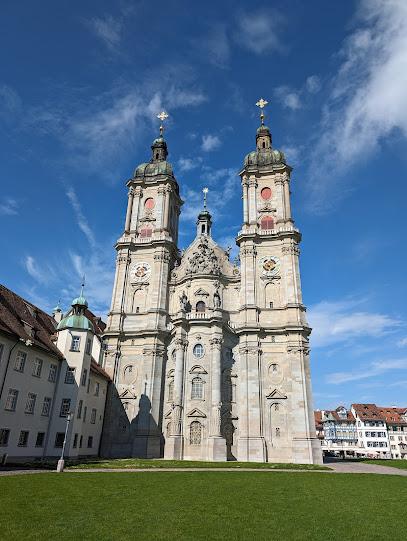
Graf-Zeppelin-Haus
A premier cultural and congress venue in Friedrichshafen offering diverse events and stunning Lake Constance views.
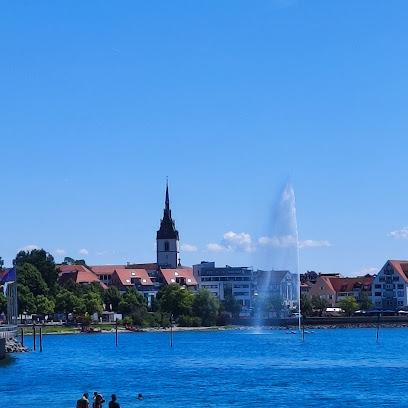
Pfänderbahn
Reach breathtaking panoramic views of Lake Constance and the Alps in minutes via the Pfänderbahn cable car in Bregenz, Austria.
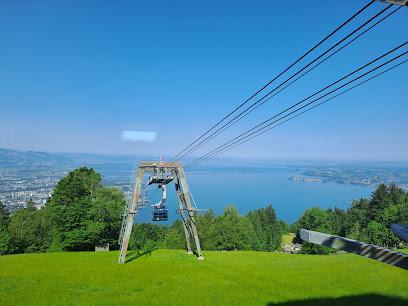
Essential places to dine
Gasthaus Stern Bangs
Discover authentic Austrian flavors at Gasthaus Stern in Feldkirch – where tradition meets comfort in every dish.
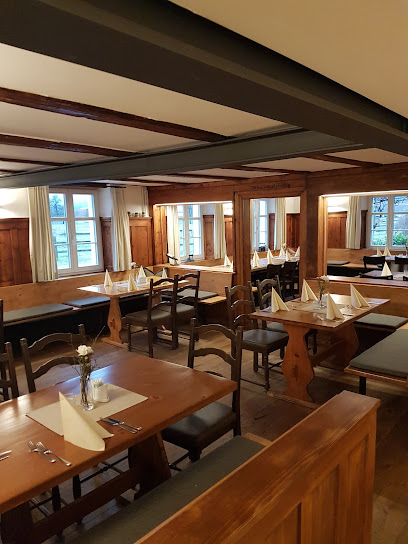
Casino Admiral Ruggell
Discover Casino Admiral Ruggell: A unique blend of gourmet dining and exhilarating gaming in Liechtenstein's picturesque landscape.
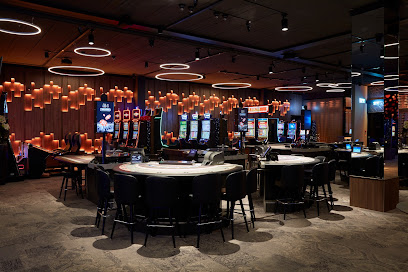
New Castle
Experience the best of Vaduz's culinary scene at New Castle - where local flavors meet international cuisine in a cozy setting.
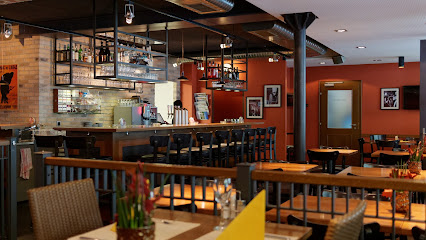
Brasserie Burg
Discover Brasserie Burg: A culinary gem in Vaduz offering gourmet burgers and Italian delights in a vibrant atmosphere.
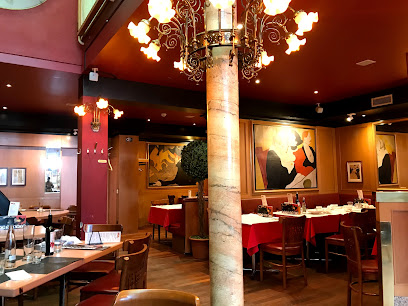
TANG
Experience authentic Chinese cuisine at TANG in Ruggell, where traditional flavors meet modern dining in a welcoming atmosphere.
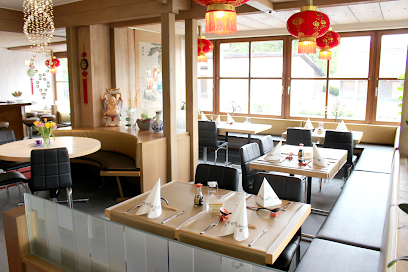
Berggasthaus Masescha
Experience exquisite local cuisine amidst breathtaking mountain views at Berggasthaus Masescha in Triesenberg.
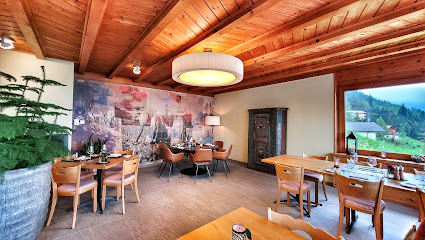
kommod - Hotel & Restaurant
Immerse yourself in comfort and culinary delights at kommod - Hotel & Restaurant in Ruggell, Liechtenstein.
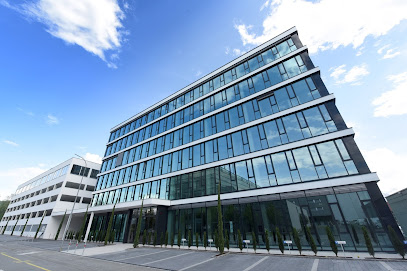
Restaurant Lio
Discover exceptional dining at Restaurant Lio in Schaan - where local flavors meet international culinary art.
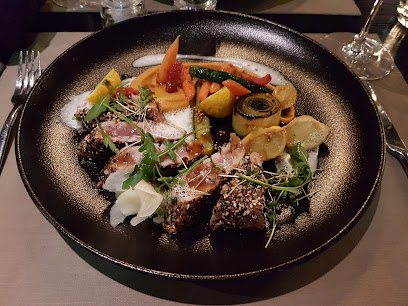
Adler
Experience authentic Swiss cuisine at Adler in Vaduz - where tradition meets flavor in a welcoming atmosphere.
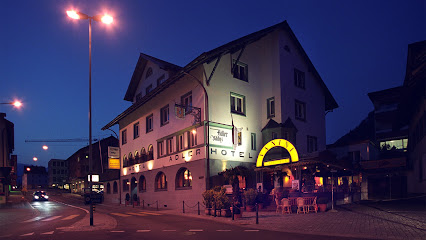
Landgasthof Au
Experience authentic Liechtenstein cuisine at Landgasthof Au – where tradition meets taste in an inviting atmosphere.
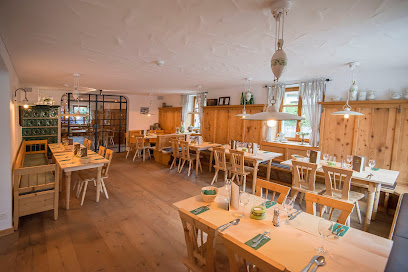
Landgasthof Rössle
Savor the rich flavors of Liechtenstein at Landgasthof Rössle – your gateway to authentic regional cuisine in Ruggell.
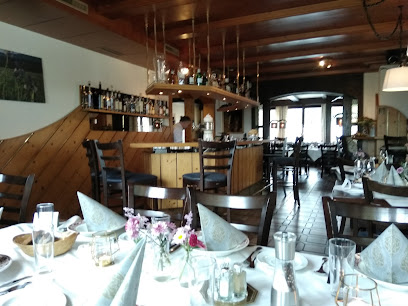
Schäfli
Discover authentic Swiss flavors at Schäfli in Sennwald - where tradition meets taste in a cozy setting.
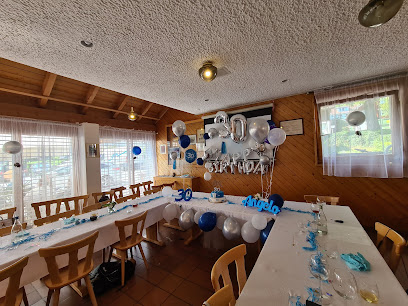
Restaurant Forum
Experience authentic Swiss cuisine at Restaurant Forum in Schaan - where tradition meets taste.
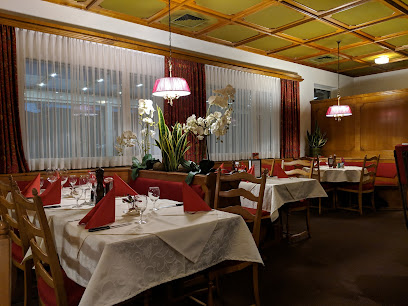
PUR - Restaurant & Bar
Experience exquisite barbecue delights and vibrant cocktails at PUR - Restaurant & Bar in Schaan.
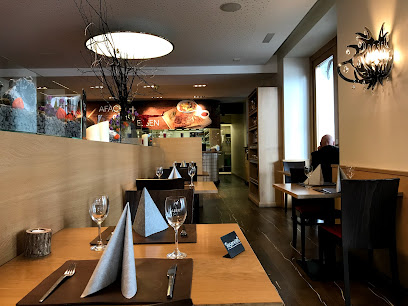
Bangshof Ruggell
Discover the exquisite flavors of Liechtenstein at Bangshof Ruggell – where every meal becomes a celebration.
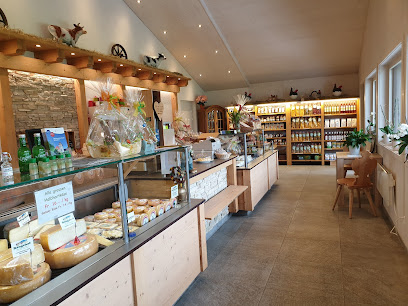
Markets, malls and hidden boutiques
Migros-Partner - FL - Ruggell
Discover the flavors of Liechtenstein at Migros-Partner - FL - Ruggell, your go-to supermarket for fresh produce, baked goods, and local specialties.
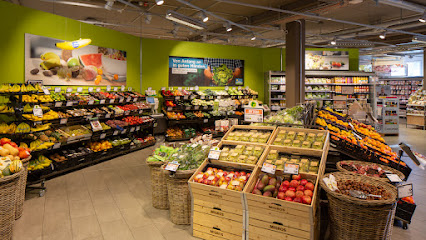
Erlebniscenter REC Ruggell
Unleash your shopping spirit at Erlebniscenter REC Ruggell, the ultimate shopping destination in Liechtenstein with diverse stores and delightful dining options.
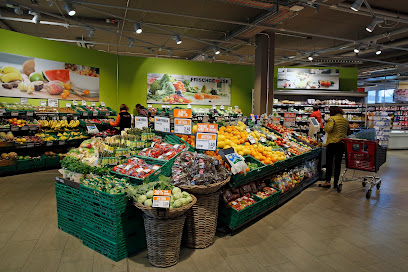
Hoi Liechtenstein - Souvenir Boutique
Explore Hoi Liechtenstein, Vaduz's premier gift shop for authentic souvenirs, local wines, and delightful food products that capture the spirit of Liechtenstein.
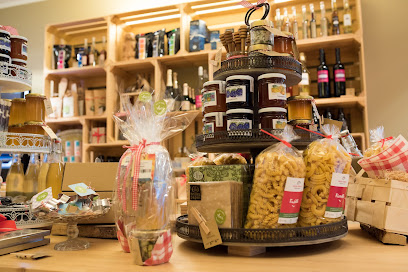
Spielplus Anstalt
Experience the joy of play at Spielplus Anstalt, the premier toy store in Vaduz, offering a delightful selection for children and the young at heart.
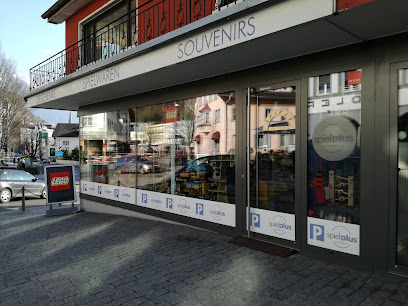
Vip's Men's Fashion
Explore premium menswear at Vip's Men's Fashion in Vaduz, where style meets elegance in the heart of Liechtenstein.
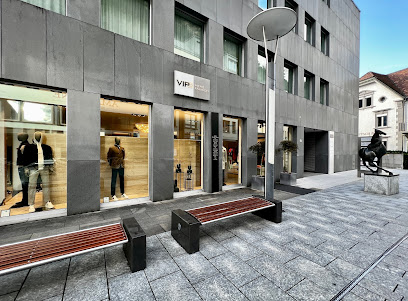
Central Plaza
Explore Central Plaza in Vaduz for unique souvenirs, local crafts, and elegant watches that embody the spirit of Liechtenstein.
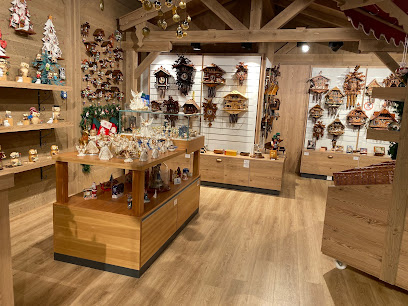
Greber AG
Explore Greber AG in Vaduz, where quality home goods meet a cozy coffee shop ambiance, perfect for tourists seeking unique finds and local flavors.
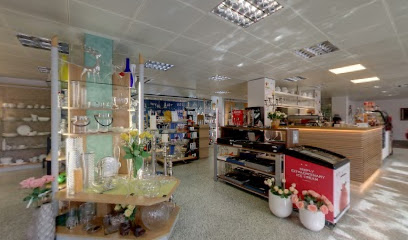
Herzog Loibner - Schmuck & Uhren
Explore Herzog Loibner in Vaduz for exquisite jewelry and luxury watches, celebrating craftsmanship and elegance in every piece.
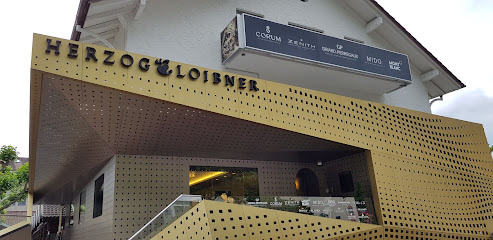
Sparklyn GmbH
Explore Sparklyn GmbH in Ruggell for exquisite handcrafted costume jewelry, a perfect blend of artistry and local craftsmanship.
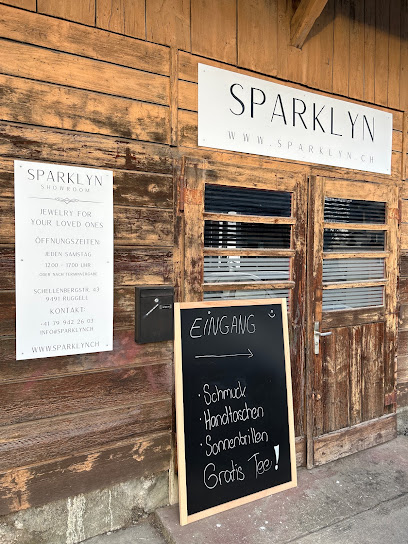
Elektrobrocki
Explore Elektrobrocki in Vaduz for a treasure trove of quality used computers and accessories at budget-friendly prices.
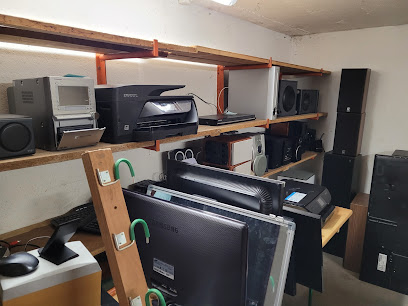
Dunja A. Sprenger - Jones Vaduz
Discover the exquisite fashion offerings at Dunja A. Sprenger, Vaduz's premier dress store, blending style and elegance in every piece.
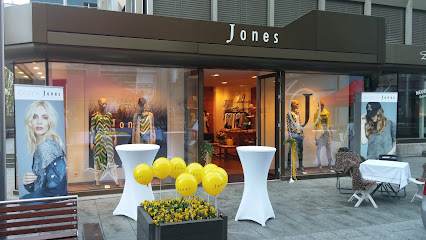
FELIX W. STUDIO Liechtenstein
Discover timeless men's fashion at FELIX W. STUDIO in Vaduz, where elegance meets contemporary style in the heart of Liechtenstein.
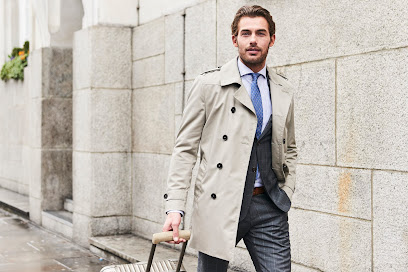
Brogle Fashion Est
Experience the latest trends in fashion at Brogle Fashion in Vaduz, where style meets quality in a chic shopping environment.
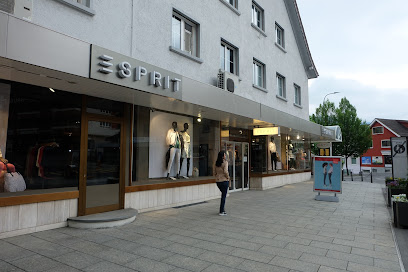
Palmers
Explore Palmers in Vaduz for exquisite lingerie and clothing, perfect for gifts or personal indulgence in a charming shopping atmosphere.
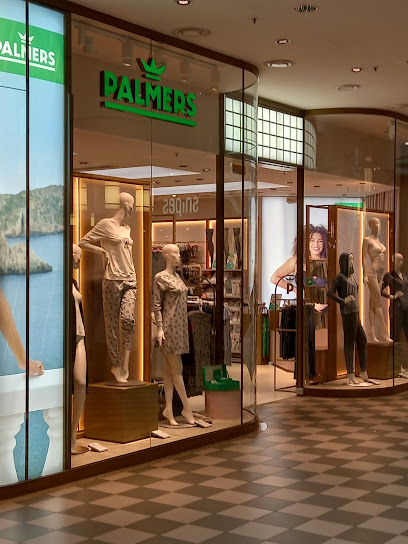
Little Bijou
Explore Little Bijou in Vaduz for exquisite wholesale jewelry that perfectly captures the elegance of Liechtenstein's capital.
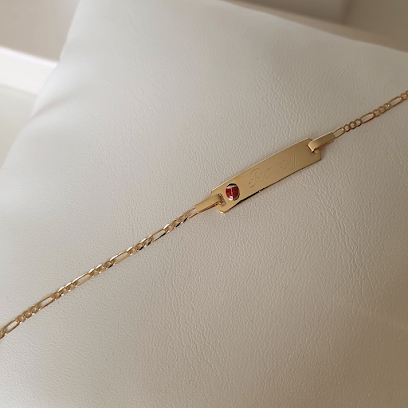
Essential bars & hidden hideouts
Reflex
Discover Reflex, a vibrant bar and restaurant in Buchs, Switzerland, offering delicious food and drinks in an inviting atmosphere.
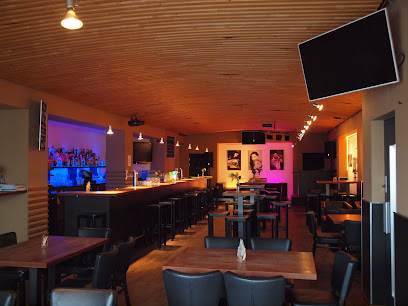
Esquire Bar.Bistro
Experience the vibrant culinary scene at Esquire Bar.Bistro in Vaduz, where exquisite food meets a lively bar atmosphere.
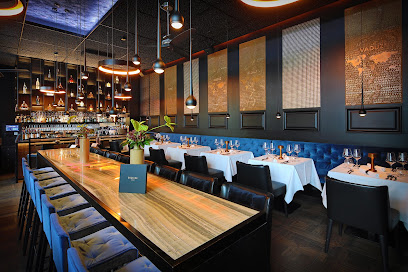
Black Pearl Bar
Discover the enchanting nightlife of Schaan at the Black Pearl Bar, renowned for its exquisite cocktails and vibrant atmosphere.
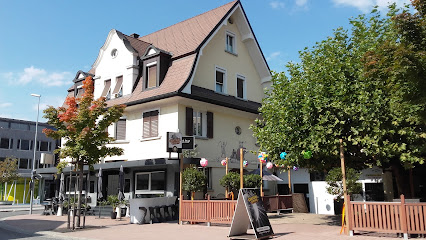
St. Martins Pub am Platz
Experience the warmth of Irish hospitality at St. Martins Pub am Platz in Eschen, where good food and drinks await.
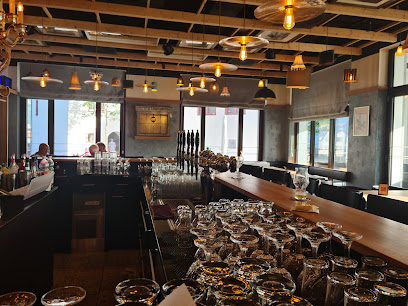
Zwei Bar
Discover the vibrant nightlife of Vaduz at Zwei Bar, where expertly crafted drinks and a cozy atmosphere await you.
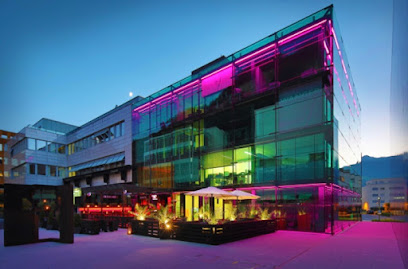
CENTRUM RESTAURANT & BAR, Vaduz
Discover the lively Centrum Restaurant & Bar in Vaduz, where delicious cuisine meets vibrant nightlife in the heart of Liechtenstein.
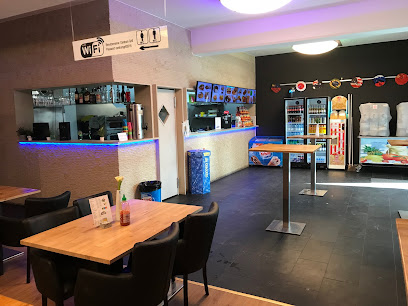
Take 5 Vaduz
Experience the thrill of sports and delicious bar fare at Take 5 Vaduz, the ultimate destination for fun and relaxation in Triesen.
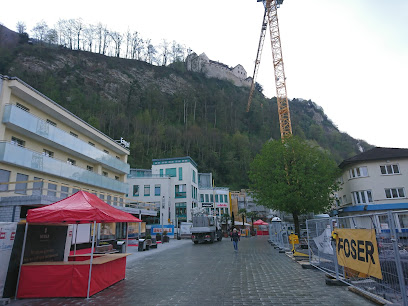
Ethno Cafe Bar
Experience the vibrant ambiance and diverse menu at Ethno Cafe Bar, the perfect spot for relaxation and socialization in Schaanwald.
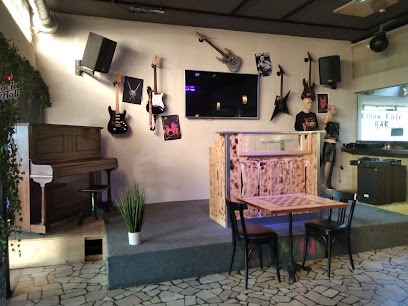
Lömagarta
Experience the vibrant atmosphere of Lömagarta, a top beer garden in Vaduz, where great beers and friendly faces await.
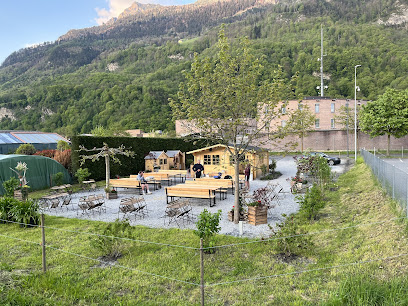
Long John Bar
Discover the vibrant nightlife at Long John Bar, a perfect fusion of cozy ambiance and a diverse drink selection in the heart of Schaan.
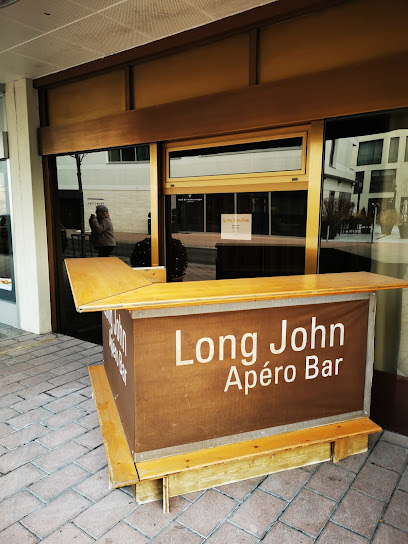
Räbabar
Experience the warm ambiance of Räbabar in Mauren, Liechtenstein, a cozy bar offering refreshing drinks in a charming setting.
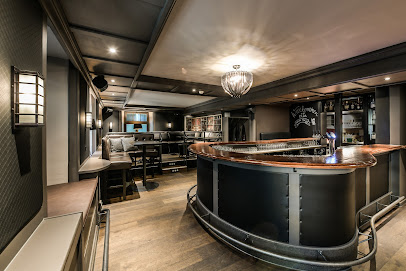
Zett's Bar
Discover Zett's Bar in Weite, Switzerland, where cozy ambiance meets delightful drinks, perfect for a restful escape in the Swiss countryside.
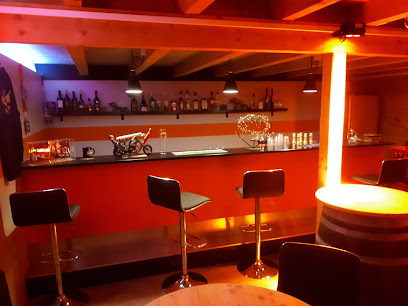
Andy's Bunker
Discover Andy's Bunker: Schaan's vibrant bar offering a unique nightlife experience with an extensive drink menu and lively atmosphere.

Elch bar
Discover Elch Bar in Malbun: A charming alpine retreat offering friendly service and a cozy atmosphere for all travelers.
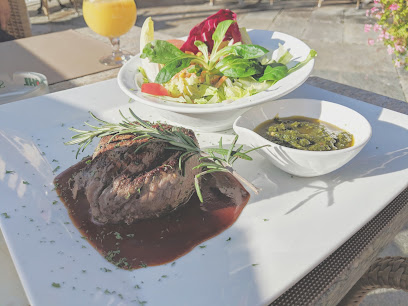
Täli-Bar
Discover the cozy ambiance and delightful drinks at Täli-Bar, your go-to spot in Malbun for relaxation and local flavor amidst stunning Alpine views.
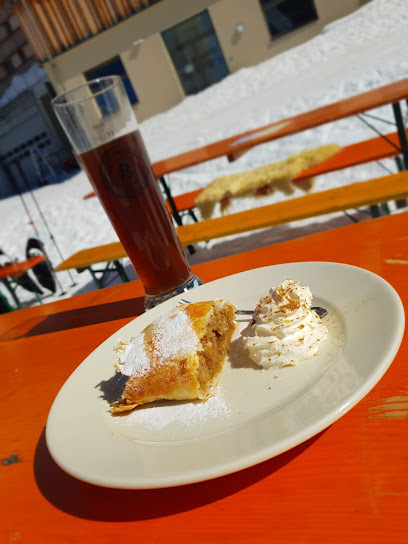
Travel experiences inspired by this city
Explore more travel diariesLocal Phrases
-
- HelloHallo
[ha-lo] - GoodbyeTschüss
[tshüss] - YesJa
[ya] - NoNein
[nine] - Please/You're welcomeBitte
[bi-te] - Thank youDanke
[dank-e] - Excuse me/SorryEntschuldigung
[ent-shool-di-gung] - How are you?Wie geht es dir?
[vee geht es deer] - Fine. And you?Gut. Und dir?
[goot. oont deer] - Do you speak English?Sprichst du Englisch?
[shprikhst doo eng-lish] - I don't understandIch verstehe nicht
[ikh fer-shtay-e nikht]
- HelloHallo
-
- I'd like to see the menu, pleaseIch hätte gerne die Speisekarte, bitte
[ikh hett-eh gern-eh dee shpize-kart-eh, bi-te] - I don't eat meatIch esse kein Fleisch
[ikh ess-eh kine fli-sh] - Cheers!Prost!
[prohst] - I would like to pay, pleaseIch möchte bitte bezahlen
[ikh merkh-te bi-te bez-ah-len]
- I'd like to see the menu, pleaseIch hätte gerne die Speisekarte, bitte
-
- Help!Hilfe!
[hilf-eh] - Go away!Geh weg!
[geh vekh] - Call the Police!Rufen Sie die Polizei!
[roo-fen zee dee po-lee-tsay] - Call a doctor!Rufen Sie einen Arzt!
[roo-fen zee i-nen arts-t] - I'm lostIch habe mich verlaufen
[ikh hah-b-eh mish fer-lou-fen] - I'm illIch bin krank
[ikh bin krank]
- Help!Hilfe!
-
- I'd like to buy...Ich möchte kaufen...
[ikh merkh-te kow-fen] - I'm just lookingIch schaue nur
[ikh shou-eh noor] - How much is it?Wie viel kostet das?
[vee feel kost-et das] - That's too expensiveDas ist zu teuer
[das ist tso too-er] - Can you lower the price?Können Sie den Preis senken?
[kuh-nen zee den prees zehn-ken]
- I'd like to buy...Ich möchte kaufen...
-
- What time is it?Wie spät ist es?
[vee shpet ist es] - It's one o'clockEs ist ein Uhr
[es ist iyn oor] - Half past (10)Halb (10)
[halb (zehn)] - MorningMorgen
[mor-gen] - AfternoonNachmittag
[nakh-mit-tahg] - EveningAbend
[ah-bent] - YesterdayGestern
[ges-tern] - TodayHeute
[hoi-tuh] - TomorrowMorgen
[mor-gen] - 1Eins
[ines] - 2Zwei
[tsvai] - 3Drei
[dry] - 4Vier
[fier] - 5Fünf
[foonf] - 6Sechs
[zeks] - 7Sieben
[zee-ben] - 8Acht
[akht] - 9Neun
[noyn] - 10Zehn
[tsayn]
- What time is it?Wie spät ist es?
-
- Where's a/the...?Wo ist ein/der...?
[vo ist iyn/der] - What's the address?Was ist die Adresse?
[vas ist dee ad-res-se] - Can you show me (on the map)?Können Sie mir zeigen (auf der Karte)?
[kuh-nen zee mir tsay-gen (ouf der kar-te)] - When's the next (bus)?Wann kommt der nächste (Bus)?
[van kommt der nekhs-te (boos)] - A ticket (to ....)Eine Fahrkarte (nach ....)
[i-ne fahr-kart-eh (nakh)]
- Where's a/the...?Wo ist ein/der...?
History of Ruggell
-
Ruggell, the northernmost municipality in Liechtenstein, boasts a rich history that traces back to the early medieval period. Archaeological evidence suggests that the area was first settled around the 5th century, with the establishment of small farming communities. These early settlers took advantage of the fertile plains and abundant water sources from the Rhine River.
-
During the medieval period, Ruggell emerged as a significant village within the region. The growth of feudalism saw the establishment of local lordships, which played a crucial role in shaping the social and economic structure of the area. The village was officially mentioned in historical records for the first time in 1330, indicating its importance in the regional landscape.
-
By the late 14th century, Ruggell fell under the influence of the Counts of Vaduz. This period was marked by increased development and fortification, as the Counts sought to protect their territories from external threats. The construction of defensive structures and the enhancement of agricultural practices contributed to the village's prosperity during this era.
-
In 1719, Ruggell, along with other regions, became part of the newly established Principality of Liechtenstein. This integration marked a new chapter in the village's history, as it came under the rule of the Liechtenstein dynasty. The principality's political stability and economic policies fostered development and improved the quality of life for Ruggell's inhabitants.
-
Throughout its history, Ruggell has maintained a strong agricultural heritage. The fertile land along the Rhine has been ideal for farming, and agriculture remains a vital part of the local economy. Traditional farming techniques and the cultivation of crops such as wheat, barley, and maize have been passed down through generations, reflecting the village's enduring connection to its agrarian roots.
-
In recent decades, Ruggell has seen significant modern development while striving to preserve its cultural heritage. The village has embraced contemporary infrastructure and amenities, without losing sight of its historical identity. Cultural events, local festivals, and the preservation of historic buildings and landmarks continue to celebrate and honor Ruggell's rich past.
Ruggell Essentials
-
Ruggell is located in the northernmost part of Liechtenstein. The nearest international airport is Zurich Airport in Switzerland, approximately 115 kilometers away. From Zurich, you can take a train to Sargans or Buchs SG, and then a bus or taxi to Ruggell. Alternatively, you can drive from Zurich to Ruggell, which typically takes around 1.5 to 2 hours.
-
Ruggell is a small town, and many of its attractions are within walking distance. For longer trips, local buses operated by LieMobil connect Ruggell with other parts of Liechtenstein. Taxis are also available, though they can be expensive. Renting a car can be a convenient option if you plan to explore the surrounding areas at your own pace.
-
The official currency in Liechtenstein is the Swiss Franc (CHF). Credit and debit cards are widely accepted in hotels, restaurants, and shops. ATMs are readily available throughout Ruggell. It is advisable to carry some cash for small purchases or in places where card payments may not be accepted.
-
Ruggell is generally a very safe destination for tourists. Crime rates are low, and there are no specific areas with high crime rates targeting tourists. However, it is always wise to take standard precautions, such as keeping an eye on your belongings and avoiding poorly lit areas at night.
-
In case of emergency, dial 112 for immediate assistance. This number will connect you to emergency services, including police, fire, and medical help. The nearest hospital is in Vaduz, the capital of Liechtenstein, which is approximately 15 kilometers from Ruggell. It is also recommended to have travel insurance that covers medical emergencies.
-
Fashion: Do dress smart-casual, especially when dining out or visiting more formal attractions. Avoid overly casual or revealing clothing. Religion: Do respect local customs and traditions, especially when visiting religious sites. Public Transport: Do be respectful and offer your seat to elderly passengers. Don't speak loudly or play music on public transport. Greetings: Do greet people with a friendly handshake. A polite 'Grüezi' (hello) is also appreciated. Eating & Drinking: Do try local delicacies and be open to new flavors. Don't refuse food or drink offerings, as it can be considered impolite.
-
To experience Ruggell like a local, visit the local markets and small shops where you can buy fresh produce and traditional Liechtenstein goods. Take a walk along the Ruggeller Riet Nature Reserve, a beautiful area that offers stunning views and a chance to see local wildlife. Engage with locals, who are often friendly and willing to share insights about the town's history and culture. Don't miss the chance to explore the nearby Rhine River, which offers opportunities for leisurely walks and picnics.
Trending Landmark in Ruggell
Nearby Cities to Ruggell
-
Things To Do in Schellenberg
-
Things To Do in Mauren
-
Things To Do in Gamprin
-
Things To Do in Eschen
-
Things To Do in Schaan
-
Things To Do in Vaduz
-
Things To Do in Triesenberg
-
Things To Do in Balzers
-
Things To Do in Dornbirn
-
Things To Do in Bregenz
-
Things To Do in Arosa
-
Things To Do in Davos
-
Things To Do in St. Anton am Arlberg
-
Things To Do in Zurich
-
Things To Do in St. Moritz








